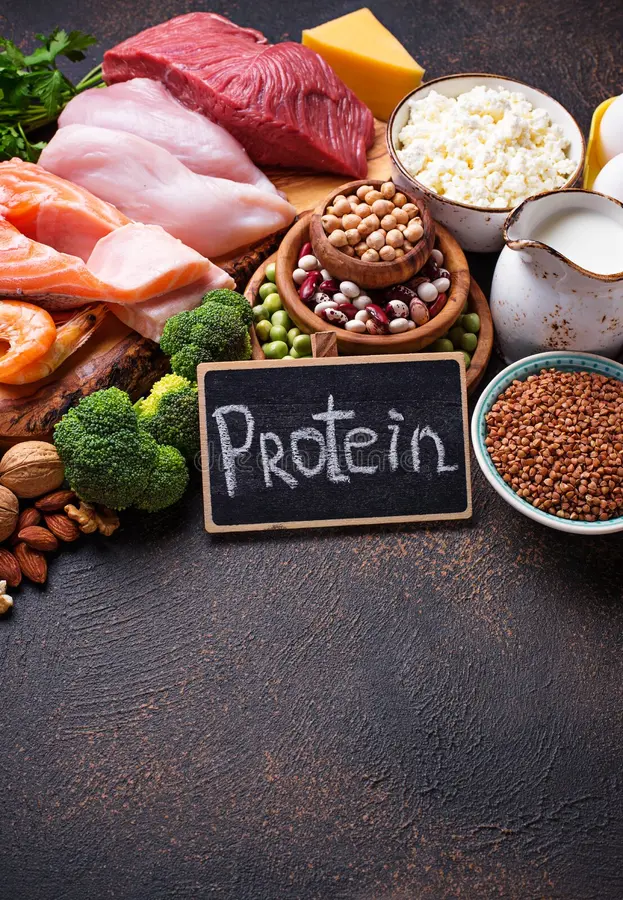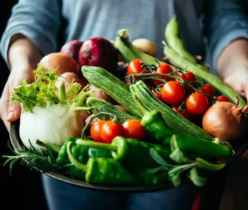Protein is a necessary nutrient for the body. It aids in muscle growth, metabolism, and the immune system. In the 21st–century world, making sustainable health the popular choice is the healthy protein. But it also helps in protecting the environment. Sustainable protein that deals with both health and environmental issues, which makes it one of the main steps to an improved future
The reason Sustainable Protein Matters.
The concept of sustainable protein generation and consumption is the focal point of the discourse of our present food system. The importance of sustainable protein needs to be understood for people to be aware of their health and the environment.
Conventional animal agriculture is also a major source of greenhouse gases and deforestation. It also uses massive amounts of water and land. Our carbon footprints are going to be lower when we eat sources of viable protein.” “Sustainable protein is good not just for your own wellness, but it can change the planet.
Evolutionary Change: Plant-Based Proteins Girlfriend, The Future of Nutrition.
The food is converted to plant-based proteins. These are the refined forms of lentils, beans, quinoa, tofu, tempeh, and chickpeas, and are packed with nutrients. They are not allowed access to natural resources or animal proteins.
These choices are high in fiber, vitamins, and minerals. It regulates digestion and promotes good health. Eat more plant protein to help lower your cholesterol and reduce your risk of heart disease.
The Growth of the Alternative Sources of Protein
The steps in disruptive food tech brought in a couple of curious options: insect protein, lab-made meat, and algae protein.
For example, insect protein is a vital resource. It isn’t necessary to use nearly as much land or water as you do for livestock. Along the same lines, algae and seaweed are also good sources of omega-3 fatty acids.
Creating a Balance between Health and Sustainability.
Healthy protein options don’t have to come at the expense of taste or nutrition. Food should be healthy. There should be a variety of sources of plant protein and/or animal protein from which to choose, with the latter ethically raised animals.
They should opt for organic eggs, wild-caught fish, and grass-fed beef, which are kinder to the planet.
Opportunity Suggestions for a Sustainable Protein Diet.
- Eat at least one portion of legumes a day, not curries, salads, or soups. These dishes can be added to lentils or beans.
- Shop local, use the seasonal items -Reduces transportation emissions.
- Test meat alternatives -Squeeze tofu, Tempeh, or seitan.
- Buy responsibly sourced seafood- Learn known sustainable marks.
- Reduce food wastage. Strength of contenting meals to consume food.
The change of just one small sentimental aspect of your food preferences will impact the Earth and your health in an insanely huge way.
Advantages of healthful proteins.
Vegetarian proteins are rich in antioxidants, fiber, and healthy fats. They help muscle recovery, blood sugar levels, and digestion. Most plant proteins also contain phytonutrients that protect against chronic disease.
Unlike processed animal proteins, sustainable proteins will help control weight and inflammation.
The Global trend towards mindful eating.
Consumers around the globe are becoming more conscious of their environment, including the food that they eat. Demand for natural, ethical food production is on the rise globally.
Agreements on more environmentally friendly protein-based dishes are being offered in restaurants and food corporations. This has been a global movement of healthy eating, where morality, health, and sustainability are mutually agreeable.
Conclusion
This is not a trend; it is a promise of the future because it involves making a healthy and sustainable choice of protein. Every bite we swallow can create a better world to live in. Vegetarian and eco-friendlier alternatives to protein products fuel the human body, and rescue the planet for our posterity.
FAQs
1. Can I obtain sufficient essential amino acids from vegetarian sources of protein?
No, you don’t have to eat all the essential amino acids your body requires to grow and heal at once; an assortment of plant proteins, including rice and beans, lentils, and quinoa, will provide your body.
2. How do I quit eating animals and never get bored?
Replace meat-centric dishes with vegetarian options, such as tofu, beans, or tempeh. Taste the world over a flavorful plant-based meal with none of animal products.



